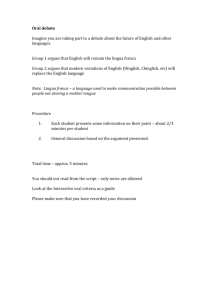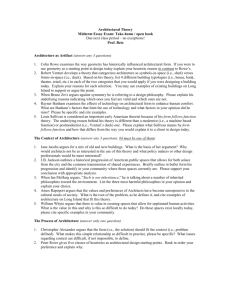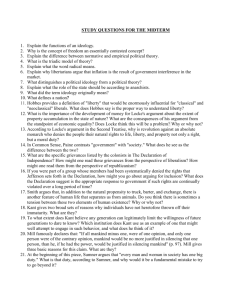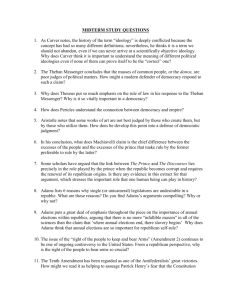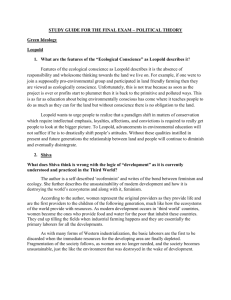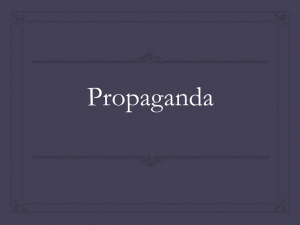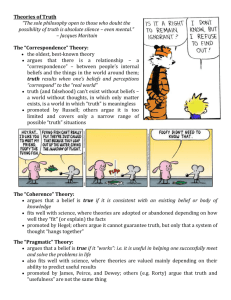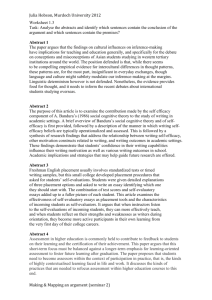What does Berry mean when he argues that we need to think of
advertisement
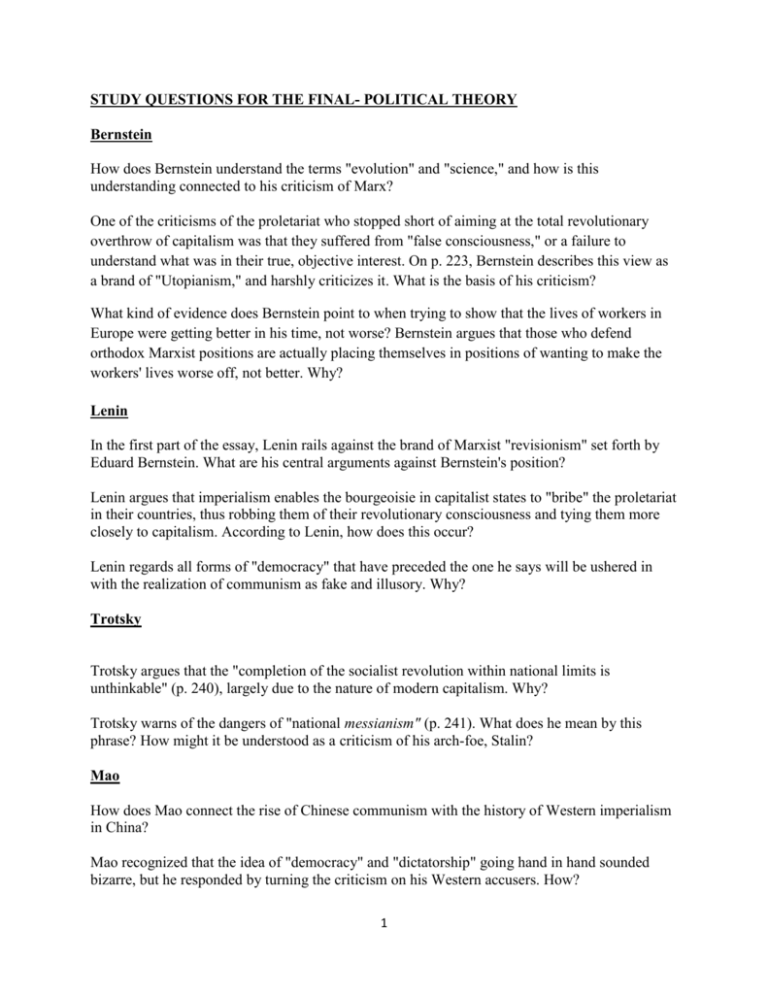
STUDY QUESTIONS FOR THE FINAL- POLITICAL THEORY Bernstein How does Bernstein understand the terms "evolution" and "science," and how is this understanding connected to his criticism of Marx? One of the criticisms of the proletariat who stopped short of aiming at the total revolutionary overthrow of capitalism was that they suffered from "false consciousness," or a failure to understand what was in their true, objective interest. On p. 223, Bernstein describes this view as a brand of "Utopianism," and harshly criticizes it. What is the basis of his criticism? What kind of evidence does Bernstein point to when trying to show that the lives of workers in Europe were getting better in his time, not worse? Bernstein argues that those who defend orthodox Marxist positions are actually placing themselves in positions of wanting to make the workers' lives worse off, not better. Why? Lenin In the first part of the essay, Lenin rails against the brand of Marxist "revisionism" set forth by Eduard Bernstein. What are his central arguments against Bernstein's position? Lenin argues that imperialism enables the bourgeoisie in capitalist states to "bribe" the proletariat in their countries, thus robbing them of their revolutionary consciousness and tying them more closely to capitalism. According to Lenin, how does this occur? Lenin regards all forms of "democracy" that have preceded the one he says will be ushered in with the realization of communism as fake and illusory. Why? Trotsky Trotsky argues that the "completion of the socialist revolution within national limits is unthinkable" (p. 240), largely due to the nature of modern capitalism. Why? Trotsky warns of the dangers of "national messianism" (p. 241). What does he mean by this phrase? How might it be understood as a criticism of his arch-foe, Stalin? Mao How does Mao connect the rise of Chinese communism with the history of Western imperialism in China? Mao recognized that the idea of "democracy" and "dictatorship" going hand in hand sounded bizarre, but he responded by turning the criticism on his Western accusers. How? 1 On p. 247, what does Mao suggest be done with the "members of the reactionary classes"? Bakunin On p. 253, Bakunin exclaims that he is "astonished" that a man as "brilliant" as Marx could make the colossal error Bakunin accuses him of. What is that error? On p. 254, Bakunin claims that Marx "pays no attention to other factors in history" beyond economic ones. What examples does he give? What does he conclude from these examples? Bakunin asserts: "When [the revolution] is directed by a small number of ruling individuals it inevitably and immediately turns reactionary" (p. 253), or aims merely at defending its new position in power. This might be seen as a prophecy about the fate of Marxist revolutions in the twentieth century. If so, how has Bakunin's prediction fared? Goldman What does Goldman identify as the chief problems with religion, private property, and government, respectively? On p. 258, Goldman describes her ideal notion of the productive process. What does it look like? What does Goldman see as the importance of "direct action"? Bellamy At the beginning of the reading, Bellamy compares nineteenth-century society to a certain kind of stagecoach. How would you explain this analogy? What is its moral? What are the leading features of economic production and distribution in the year 2000, according to Bellamy, and why are they preferable to the productive process of the nineteenth century? Yates On pp. 277-278, Yates delineates 6 broad points of agreement that he shares with Marx about the nature of capitalism and its effects. What are these points? What does Yates identify as the principal reasons for the working class's failure, up to this point, to develop a revolutionary class consciousness, as Marx predicted would happen? What concrete steps does Yates think Marxists need to take to maximize the chances of their ideology's success in the contemporary world? Gobineau 2 What sorts of stereotypical characteristics does Gobineau ascribe to different races? How does he try to give his theory the aura of "science"? Does Gobineau believe that anything good can come from racial mixing? If so, can it ever outweigh the negative consequences of such mixing, on Gobineau's view? What are the social and political implications of Gobineau's theory? How and why do civilizations continue to flourish, and how and why do they decline? What follows from this, as far as one race's treatment of another is concerned? Mussolini On pp. 297 and 299, Mussolini suggests that, while Fascism rejects older forms of democracy, it can in fact be seen as the "purest form of democracy" (p. 297), rightly understand. Why? Fascists deny that history is a story of progress. How, then, does Mussolini say history should be understood, from a fascist perspective? What is the fascist attitude toward violent conflict, according to Mussolini? Why do they adopt this attitude? Rocco How does Rocco describe the "fascist view of liberty" (p. 306)? On the one hand, Rocco points out that: "Fascism does not look upon the doctrine of economic liberty as an absolute dogma" (p. 307). On the other hand, Rocco argues that socialism "does not take into account human nature" (p. 308). Given these two claims, what then is the economic theory of fascism, according to Rocco? According to Rocco, what is the primary problem with democracy? How do fascists propose to remedy it? Hitler Early on in this reading, Hitler compares the relationship between a leader and his people to that between a man and a woman. How does he understand this relationship, and what does it tell us about Nazi beliefs? What specifically does he propose be done to solve the "problem" of race? How does Hitler define the "Aryan race," and what characteristics does he attribute to it? What other "races" does he discuss, and what does he claim are their defining characteristics? At the conclusion of this piece, Hitler directly attacks Karl Marx and communism. What are his basic criticisms of this political ideology, and how does he contrast it with Nazism? King 3 Why does Dr. King advocate a “guaranteed annual income” in this speech, and does he really seem to think it is economically feasible? What reason(s) does King give for continuing to advocate non-violence over violence as the appropriate means for transforming American society? How, precisely, does King respond to the charge that his perspective (and perhaps he himself) is “communist”? Malcolm According to Malcolm X, how was the 1964 Civil Rights Act being scuttled by white racist politicians, especially the southern Democrats or “Dixiecrats”? In what ways does Malcolm X link the struggle for Civil Rights to the broader global struggle for Human Rights? What specific measures does he say should be taken by people who are denied these fundamental rights? What, according to Malcolm X, are the defining features of black nationalism? Biko Biko articulates a harsh critique of conventional institutionalized Christianity in general and of Christian missionaries in particular, as contributing factors in the development of white racism and the warping of black self-consciousness. What is that critique? Why does Biko believe that the education system in South Africa has warped black consciousness? What aspects of black culture does Biko believe should be accentuated by the Black Consciousness Movement? Wollstonecraft Wollstonecraft argues that one of the reasons women did not cultivate their reason was because men placed them in a set of institutions within which they did not see the point of doing so. What does Wollstonecraft think that most women devote themselves to, instead of cultivating reason? Wollstonecraft believes that even if married women make the decision to stay at home with their children, they still need to be educated in fundamentally different ways than those that prevailed in her society. Why? Wollstonecraft compares the corruption of women’s character with the corruption of the wealthy by their riches. How does she think they are similar in important ways? How are they different? 4 De Gouges In Article 6, de Gouges makes a radical case for the extension of democracy. What is it? In Article 6, de Gouges makes an argument in favor of rights for women, with reference to crime and punishment. What is her point? In article 14, de Gouges links “holding offices, honors, and jobs,” with being “taxed equally.” What is her argument here? Grimke What specific sorts of discrimination does Grimké say that the law authorizes against women and slaves alike? According to Grimké, what are the chief contributing factors to the sad and sorry condition of women in the United States in the 19th century? Grimké paints an especially painful portrait of the plight of female African American slaves in the United States. At the same time, she argues that white American women are in part responsible for that plight. Why? Seneca Falls Declaration Like the Declaration of Independence on which it is modeled, the “Seneca Falls Declaration” lists a range of grievances that are said to constitute “absolute tyranny” (p. 372). How would you summarize the most important of these grievances against men, and their effects on women? What is the role played by the “law of nature” in the framing of the “Resolutions” portion of the document? In reading this document, how many of its aims would you say have been realized by American women? By women worldwide? Have the goals of the early feminists been realized? Frye What sorts of examples does Frye give of the phenomenon of the “double bind”? Do you find them convincing? Why or why not? What does Frye say is so wrong about the “door opening ritual”? Do you think her argument is compelling, or not? On p. 382, Frye argues that the fact that many men do not feel that they can cry, while many women must conform to certain body postures and ways of walking, are distinctly different: the latter is oppression, the former is not, she claims. Why? 5 Corvino According to Corvino, what are the 5 things people could mean by the claim that homosexuality is “unnatural”? In brief, what is his response to each of these claims? Do you find his argument convincing? Why or why not? What are the principal arguments Corvino constructs to undermine the claim that homosexuality is harmful to other people? Do you find them convincing? Why or why not? In his conclusion, Corvino argues that when the nature and harm arguments fail, homophobic people try to “change the subject,” by asking:”’But what about incest, polygamy, and bestiality?’” That is, if we accept the legitimacy of homosexual relationships, they ask, what would be the basis for preventing these other kinds of relationships? Corvino finds such argument to be completely unconvincing. Why? What does Gutierrez argue that Christians should learn from Karl Marx? Gutierrez What Biblical sources does Gutierrez draw on to support liberation theology? On p. 407, Gutierrez argues that when people free themselves of psychological oppression, they will have a new understanding of the relationship human beings have to history. What is that new relationship? Singer In the first part of the article, Singer argues that we shouldn’t understand equality as meaning “actual equality among human beings”; rather, “it is a prescription of how we should treat humans” (p. 413). What does Singer mean by this distinction? What does he mean by equality? To illustrate his argument, Singer claims that someone doing a medical experiment on an adult nonhuman mammal ought to be willing, as a matter of logic, to perform the same experiment on an orphaned human infant. Why? Singer contends that the interests for which human beings kill animals are “trivial” (p. 415). Why? Leopold What does Leopold see as the basic challenges preventing the development of a new land ethic? What does Leopold mean by the "Land Pyramid"? What are the features of the "Ecological Conscience" as Leopold describes it? 6 Berry How does Berry describe the phenomenon of "interdependence" (p. 437)? What does Berry mean when he argues that we need to think of nature in terms of a "mutuality of interest" (p. 439)? What does Berry mean when he argues that we need to re-imagine "a proper human scale" (p. 440?)? Foreman Why does Foreman defend the idea of "putting Earth first in all decisions, even ahead of human welfare if necessary?" (p. 443). Why does Foreman believe that "wilderness is the real world" (p. 444)? What is the purpose of "monkey wrenching"? What does Foreman mean when he calls Earth First! a "Warrior Society" (p. 447)? Shiva What does Shiva point to as evidence that women work in cooperation with nature, rather than against it? Why does Shiva think that the "recovery of the feminine principle" has "revolutionary and liberational potential" (p. 450)? What does Shiva think is wrong with the logic of "development" as it is currently understood and practiced in the Third World? Qutb What does Qutb believe that Islam can provide to the modern world that it currently and chronically lacks? What does Qutb mean by the term Jahiliyya? What is the fundamental mistake that it leads to, on his view? What are the "milestones" to which Qutb refers and why are they important? 7 How do the authors think that globalization increases individual freedom? Why do the authors think that Karl Marx was both right and wrong about globalization? Do the authors suggest that there are any negative consequences tied to increased globalization? If so, what are they, and what should be done about them? Buchanan What are the negative consequences that Buchanan sees as the direct effects of globalization? Why, specifically, did Buchanan fight against the North American Free Trade Agreement (with Mexico) and the extension of "Most Favored Nation" trading status to China? What's so bad about economic trade with these two countries in particular, according to Buchanan? Why does he believe that the idea of the "level playing field" a "myth"? Why does Buchanan think that free trade is a betrayal of conservatism? 8
